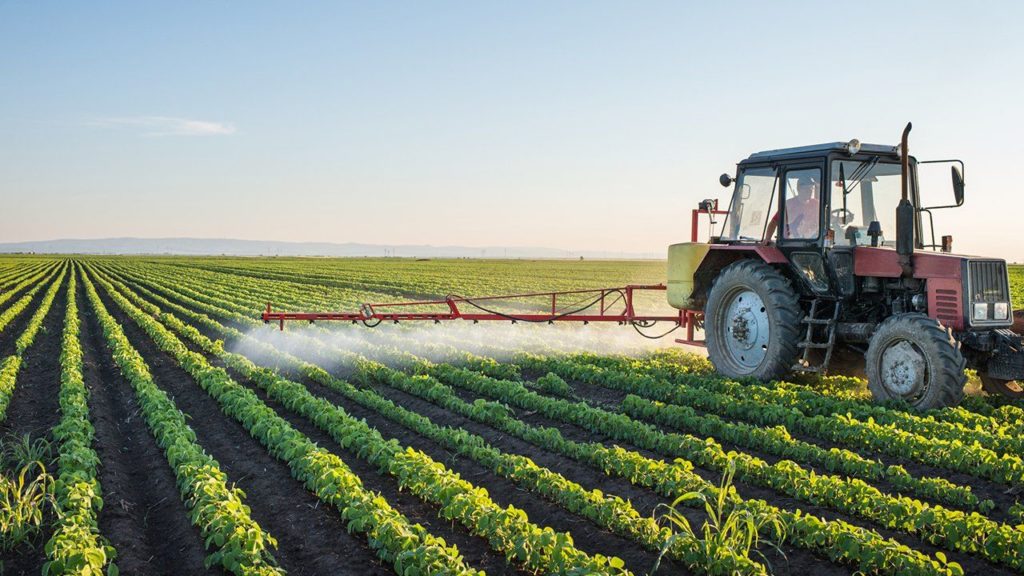
The tractor industry plays a pivotal role in modern agriculture, revolutionizing farming practices worldwide. Tractors are indispensable machines, enhancing efficiency and productivity by performing critical tasks such as plowing, planting, and harvesting. Over the decades, technological advancements have transformed tractors into sophisticated vehicles equipped with GPS, automated systems, and eco-friendly engines, catering to diverse agricultural needs. The industry’s growth is driven by continuous innovation, responding to demands for sustainability, precision farming, and increased yield. Beyond agriculture, tractors also find application in construction, landscaping, and transportation, underscoring their versatility and economic significance globally. As the world faces challenges of food security and environmental sustainability, the tractor industry remains at the forefront, shaping the future of modern farming and beyond.

The tractor industry stands as a cornerstone of modern agriculture, representing a nexus of innovation, efficiency, and technological advancement. Tractors have revolutionized farming practices globally, enabling farmers to undertake critical tasks with enhanced precision and productivity. From plowing vast fields to seeding, fertilizing, and harvesting crops, these versatile machines have become indispensable in maximizing agricultural output while minimizing labor and time-intensive processes.
At the heart of the tractor industry lies a commitment to continuous innovation. Manufacturers continually push boundaries, integrating cutting-edge technologies to meet evolving agricultural demands. These advancements encompass everything from engine efficiency and fuel economy to the integration of GPS and autonomous capabilities. Such innovations not only enhance operational efficiency but also contribute significantly to sustainable farming practices by minimizing fuel consumption and reducing carbon footprints.
Precision farming represents a significant evolution within the tractor industry, leveraging advanced sensors and data analytics to optimize crop management. Tractors equipped with GPS-guided systems can precisely plant seeds, apply fertilizers and pesticides, and even harvest crops with minimal overlap or wastage. This precision not only increases yield but also ensures environmental sustainability by reducing chemical usage and enhancing soil health through targeted applications.
Moreover, the tractor industry plays a crucial role in meeting the challenges of food security and global agricultural sustainability. As the world population grows, so does the demand for food production. Tractors, through their efficiency and scalability, enable farmers to cultivate larger areas of land more effectively, thereby contributing to meeting this increasing demand. Additionally, by adopting technologies that promote sustainable practices, such as no-till farming and integrated pest management, tractors aid in preserving natural resources and biodiversity while safeguarding agricultural productivity for future generations.
Beyond traditional agriculture, tractors find applications in various sectors such as construction, landscaping, and transportation. Their robust build and powerful engines make them invaluable for earthmoving tasks, road construction, and material handling. In urban areas, compact tractors are employed for maintaining parks, clearing snow, and transporting goods. This diversification of tractor usage underscores their versatility and economic significance across different industries, further solidifying their role as essential machinery in modern infrastructure and development projects.
The global tractor industry exhibits a dynamic landscape characterized by both established manufacturers and emerging market players. Established brands continuously invest in research and development to stay ahead in technological innovations and market competition. Simultaneously, emerging markets witness a surge in demand for tractors as developing economies mechanize their agricultural sectors to improve productivity and economic growth. This trend not only fosters competition but also encourages collaboration and partnerships across regions to enhance technological transfer and market access.
Moreover, governmental policies and regulations significantly influence the tractor industry’s growth trajectory. Policies that promote sustainable farming practices, encourage investment in agricultural mechanization, and provide subsidies for tractor purchases play a pivotal role in shaping market dynamics. Additionally, regulations concerning emissions standards and safety requirements drive manufacturers to innovate cleaner, safer, and more efficient tractor designs that meet both regulatory compliance and market demands.
Looking ahead, the tractor industry is poised for further evolution driven by advancements in automation, electrification, and digital connectivity. Autonomous tractors equipped with artificial intelligence and machine learning algorithms promise to revolutionize farming operations by enabling unmanned fieldwork and real-time data-driven decision-making. Furthermore, the shift towards electrification aims to reduce greenhouse gas emissions and operational costs while enhancing energy efficiency in agricultural machinery.
In conclusion, the tractor industry stands at the intersection of tradition and innovation, embodying the agricultural sector’s drive towards efficiency, sustainability, and technological progress. As global challenges such as food security and environmental sustainability continue to shape agricultural practices, tractors remain pivotal in enabling farmers worldwide to meet these challenges effectively. With ongoing advancements and a commitment to excellence, the tractor industry remains poised to play a central role in shaping the future of farming and sustainable development on a global scale.









